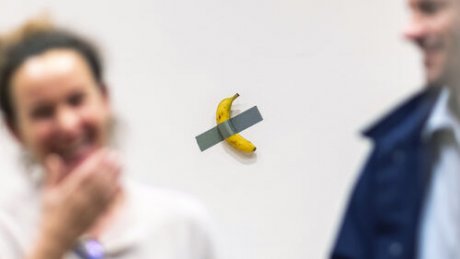Experts raise concern over rapid rise of Chinese app Talkie AI in US
Following the success of short-form video app TikTok and online marketplace Temu, another Chinese-developed app, Talkie AI, has quickly gained popularity in the United States, as per reports

Given the concerns over data theft and the influence of Chinese tech firms, some Chinese affairs experts believe the Chinese Communist Party (CCP) has backed Talkie’s rapid expansion into Western markets, and the app carries hidden factors of China’s unrestricted war against the West, according to The Epoch Times.
Talkie AI, which was launched about a year ago, is a conversational artificial intelligence (AI) platform that allows users to engage with a series of virtual characters through the app, such as Donald Trump, Taylor Swift, Elon Musk, and other celebrities.
In the app, these AI-powered characters are designed to mimic a natural conversation with the users.
The Talkie app was ranked among the top six entertainment apps on Apple’s app store last month (July), according to Data.ai, a San Francisco-based unified data and AI company that combines consumer and market data to provide AI-powered insights into mobile app market data.
Although the app’s developer SubSup is listed as a Singaporean startup, Talkie’s parent company is actually MiniMax, which is based in Shanghai and one of several top AI firms in China, the publication reports.
As per reports, Talkie app primarily targets a young audience, particularly American teens and young adults, mirroring TikTok’s demographic focus.
Two years ago, shortly after its introduction, Temu, the US offshoot of Chinese e-commerce giant Pinduoduo Inc, became the most downloaded new app in America — both in App Store and Google Play.
Temu also started to develop a reputation for undelivered packages, mysterious charges, incorrect orders, and unresponsive customer service, and it became subject to several complaints to the Better Business Bureau (BBB), and had a BBB customer rating of less than 1.5 stars, according to Time Magazine.
Pinduoduo, Temu’s sister company, has long been accused of hosting sales of counterfeits, illegal goods, or products that do not match their descriptions, reports Time Magazine.
Recently, Temu was accused of illicitly acquiring personal information, raising concerns about security risks as it expands overseas markets with cheaper goods, as per reports.
According to a June 2024 report by Security Week, the company behind the Chinese shopping app Temu has been sued by the Arkansas Attorney General.
The lawsuit, which describes the application as ‘dangerous malware’, claims Temu can collect a lot of data from the devices it’s installed on, and points to the risks of providing information to a Chinese company, reports Security Week, which provides cybersecurity news and information.
Temu, however, denied the accusations and said the lawsuit is based on inaccurate information, and it will defend itself against the claims.
The Epoch Times reported, citing an analytical report by Grizzly Research, that Temu can illegally access smartphone operating systems without authorization, allowing unrestricted access to user data, including camera functions, location information, contacts, messages, documents, and other applications.
The report also details the Chinese e-commerce company’s confusing business model as it reportedly loses $30 on every order, and exorbitant costs for advertising and shipping from China to the United States call into question the venture’s profitability, reports The Epoch Times.
Meanwhile, concerns that the Chinese government could access sensitive user data, like location information, through the short-form video app TikTok, which is owned by the Chinese company ByteDance, have prompted the Joe Biden government in the United States to pass legislation banning the social media platform unless it is sold to a government-approved buyer, The New York Times reported in June.
Talking about the Chinese-developed Talkie app, China affairs commentator and columnist Tang Jingyuan told The Epoch Times that he believed that the Chinese Communist regime’s influence has been instrumental in Talkie’s rapid rise in the US market.
“The Chinese regime’s backing likely played a crucial role in Talkie’s swift rise to success in the United States in a short period of time. I believe the CCP has invested state resources in developing the technology and opening up the US market," Tang said.
"Given what we know from TikTok’s experience with CCP influence, it’s clear that Talkie is likely subject to similar manipulation,” he added.
According to The Epoch Times, Chinese-developed applications are inherently subject to the control and manipulation of the Chinese Communist regime.
As per Chinese state media, TikTok parent ByteDance first established a CCP branch in October 2014 and later formed a CCP committee in April 2017.
The committee had several working groups consisting of at least 140 people, reports said.
In a January Senate hearing on TikTok, US Senator Tom Cotton raised concerns with TikTok CEO Shou Zi Chew about the presence of a CCP arm within TikTok parent ByteDance, saying that ByteDance’s obligations under China’s National Security Law and its accountability to the CCP required it to comply, reports the US-based publication.
The Senator further questioned the independence of TikTok’s operations in light of these ties, implying scepticism about the company’s claim to be uninfluenced by the CCP despite these connections, reports said.
The Epoch Times reported, quoting China affairs commentator Tang Jingyuan, that the infiltration of numerous Chinese apps into Western countries must have relied on extensive support from China in terms of funding and manpower.
The columnist also cautioned that Western nations should not merely view these Chinese companies through the lens of “trade wars.”
"In the era of big data and information, data is an important resource in trade wars that can be applied in many areas. But for the CCP, it is seen as a potent weapon in the war to undermine democracies such as the United States,” Tang said.
Trending
.jpg?t=rgXbimPa9UfzIW7v6JcY1A)



















